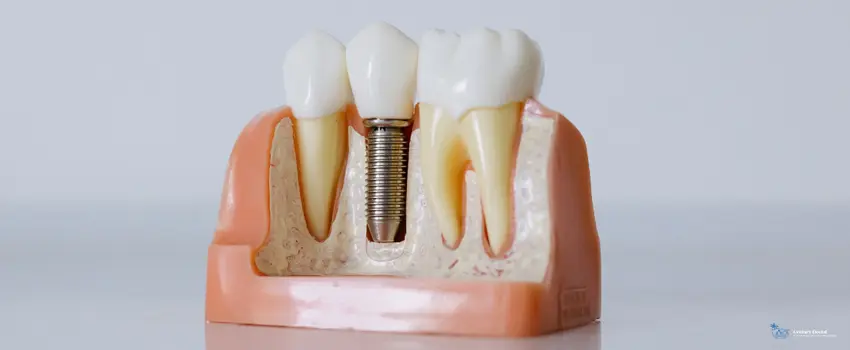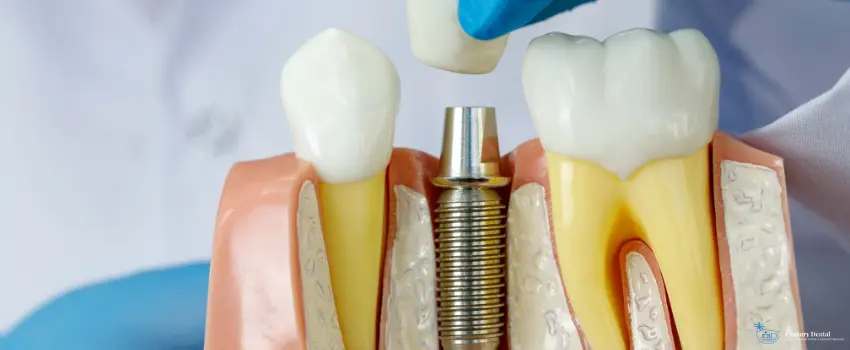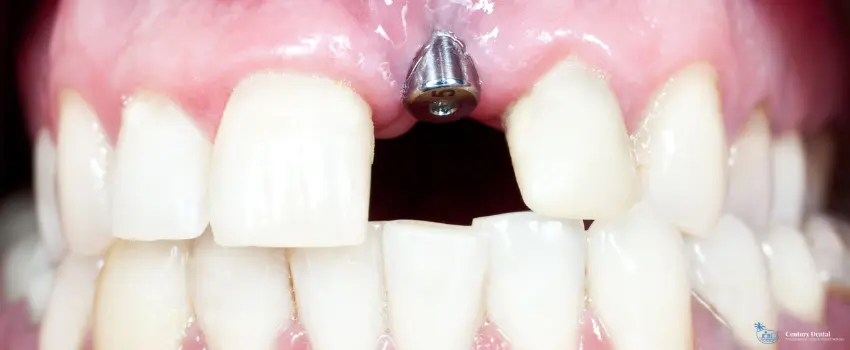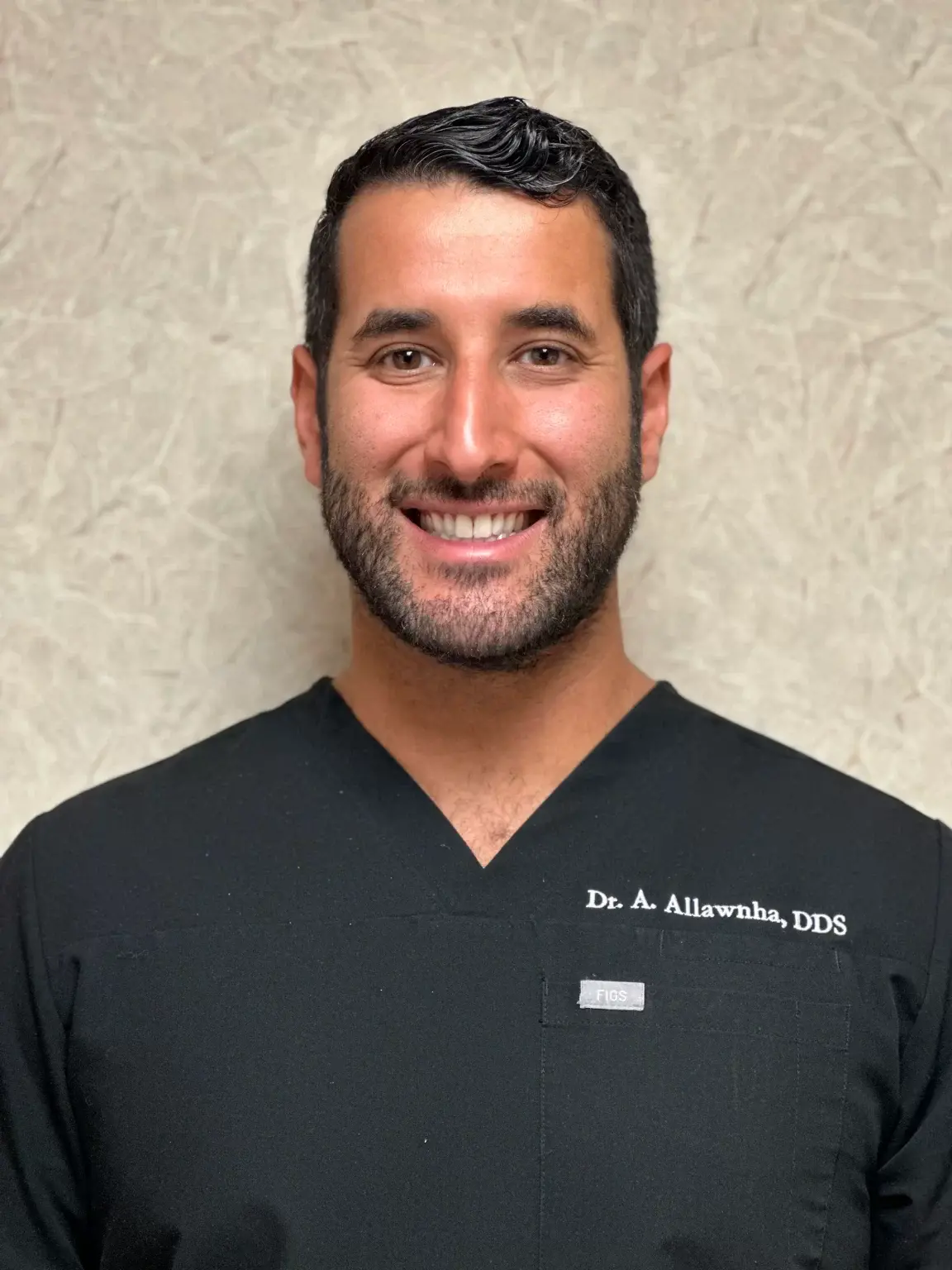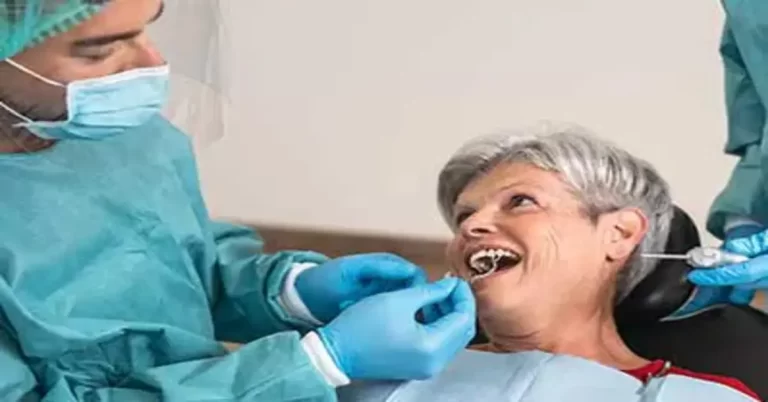Dentists highly recommend dental implants for replacing decayed or missing teeth. Unlike traditional solutions such as dental bridges, dentures, and dental crowns, implants are a more advanced solution that helps patients regain their teeth’s functionality, confidence, and beautiful smile.
While it’s rare, you may encounter some problems after a dental implant surgery. You can avoid them with the proper care and preparation.
What are dental implants for?
Dental implants are durable, long-term replacements for missing teeth. Dental surgeons insert titanium screws into the jawbone as a tooth root replacement. After it has healed and fused with the jawbone, it can hold an artificial tooth or crown in place.
Dentists recommend implants to:
- Stabilize the surrounding teeth and jaw tissue
- Restore the appearance of damaged teeth
- Prevent bone loss
- Enhance the ability to bite and chew food
What are two things that affect dental implant surgery success?
Implants are one of the best missing tooth replacement options available, but not everyone can have them. Their failure or success will depend on:
Success Rate
The success of dental implantation isn’t always guaranteed. They can fail early, shortly after implant insertion, or late when the implant has been in place for a while.
Dental implants have a 90-95% success rate. However, this may be lower if:
- You smoke
- Have diabetes
- You are undergoing radiation therapy to the jaw area
- You’re taking certain medications that can weaken the jawbone.
Suitability
Not everyone is a suitable candidate for dental implants. Candidates should be in good overall health. They should also have healthy gums and jawbones that will provide lifelong support for the implants.
Dental Implants Problems You May Encounter
While dental implant surgery has a high success rate, it may be unsuitable for some and carries the risk of long-term complications.
Some problems that happen after a dental implant surgery are:
Infection
Infection at the implant site is the most frequent complication of dental implant surgery. Some signs of dental implant infection include visible pus, fever, swollen gums around the implant, and throbbing pain.
Treatments may vary depending on the infection’s location and severity. Bacterial gum infections may need antibiotics or soft tissue grafts. Dentist may need to remove the affected bone tissue and dental implant in cases of bone infections followed by bone and soft tissue grafts.
Gum Recession
Sometimes, patients may experience gum recession around the implant, resulting in inflammation and discomfort. Seeking prompt dental evaluation is crucial to avoid implant removal.
Loose Implant
Dental implants gradually bond and integrate into the jawbone in the first few weeks after dental implant surgery. This process is crucial for the implant’s long-term success, but can take several months.
If the implant fails to fuse with the bone, the dental surgeon may need to remove it. Once the area heals, they can attempt the implant procedure again.
Nerve or Tissue Damage
Dental surgeons may accidentally place dental implants too close to a nerve, which can cause numbness, tingling, or pain. Short-term symptoms are common after surgery, but patients may also experience long-term symptoms.
Nerve or tissue damage needs immediate medical attention. An injury to the inferior alveolar nerve (IAN) in the lower jaw is particularly concerning. Some potential symptoms include:
- Persistent pain or discomfort
- Continued numbness on the side of the implant, including the lower lip and chin
- Burning, tickling, and tingling sensations in the gums and skin
Sinus Issues
Dental implants in the upper jaw can sometimes protrude into the sinus cavities. This can cause sinus inflammation or sinusitis, which can cause symptoms such as:
- Pain, swelling, or tenderness around the forehead, cheeks, and eyes
- Bad breath
- Reduced sense of smell
- Toothaches
- Green or yellow nasal mucus
- Blocked nose
- High temperature
- Sinus headaches
Damage from Excessive Force
Excessive force or impact can loosen or crack a dental implant. Some people may unintentionally apply excess force on their dental implants when they grind or clench their teeth. A sports injury can also dislodge or damage an implant.
Peri-implantitis
Peri-implantitis is a form of gum disease caused by persistent inflammation at the implant site. It results in the loss of bone supporting the dental implant. Its symptoms, such as bleeding or swelling around the implant site, can take up to five years to advance and manifest.
Implant Rejection
While rare, the body may reject a dental implant. A 2019 review suggests that researchers are exploring the risks associated with using dental implants made of titanium and other metals. Some people have a rare sensitivity to metals, which can lead to the rejection of metal implants.
Researchers suggest that individuals undergo metal sensitivity testing before opting for metal implants as a precautionary measure.
How To Avoid Dental Implant Problems
While implants aren’t natural teeth, maintaining good oral hygiene and a healthy diet is essential for their long-term success.
Dental surgeons may need to remove and re-implant infected or loose implants. Fortunately, you have nothing to worry about re-implantation, since it’s successful 90% of the time.
But, as many health experts say, prevention is better than cure. Here are some of the things you can do to avoid dental implant risks and side effects:
- Stick to a soft diet and avoid hot foods and drinks after the surgery.
- Stop smoking to help your gums heal.
- Practice proper oral care.
- Brush twice daily for two minutes using a soft-bristled toothbrush.
- Floss once daily.
- Consider wearing a mouthguard if you grind your teeth.
- Schedule regular dental visits.
When To See a Dentist
Your dental surgeon or dentist may prescribe antibiotics to prevent infections. You may also need to take over-the-counter or prescription pain relievers for the pain.
Bruising or swelling should subside after a few days. But if they persist for more than a week, schedule a follow-up dental appointment.
Healing after the surgery may take a few weeks. Seek medical attention if you experience persistent pain or slight movement from the implants.
Key Takeaway
Dental implants are the best replacements for missing teeth. While they’re reliably successful, they can fail and cause problems like infections, gum recession, nerve damage, and more.
Avoid implant problems by practicing good oral care and quitting tobacco products. You should also consider wearing a mouthguard if you grind your teeth. Schedule regular dental visits for follow-ups and professional cleanings.
Maintain your implants with us.
Your dentist or dental surgeon is your partner in keeping your implants in good shape. Aside from dental implantation, our dentist in St. Pete beach ensures their success by providing the best implant services such as maintenance, grafting, computer-enhanced treatment planning, and more.
Dental implant complaints do go unheard at Century Dental. Contact us today.

